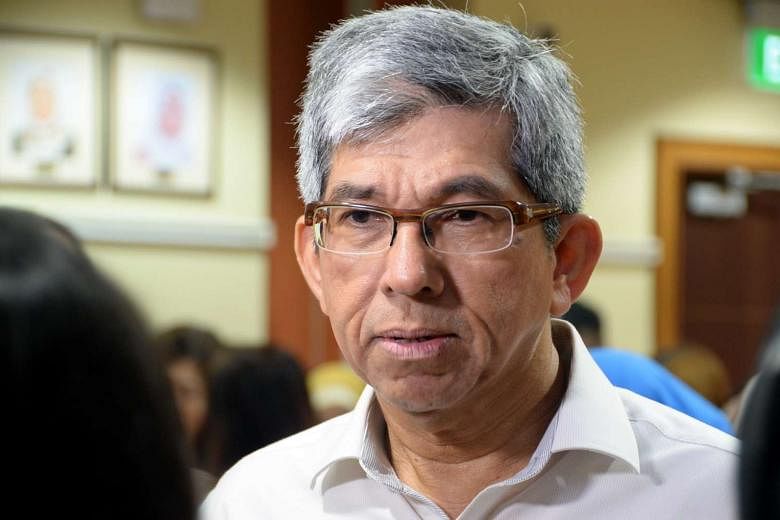SINGAPORE - As the world becomes more connected and complex, differences among communities will become more apparent and frequent, said Minister for Communications and Information Yaacob Ibrahim on Thursday.
Such differences, even if irreconcilable, need to be dealt with in a calm, rational and dignified manner, he added.
"How we manage those differences will determine whether we will be able to enlarge the common ground, accommodate a greater plurality of views and ideas, and yet not tear us apart," Dr Yaacob said when he opened a conference on challenges facing Muslim societies around the world today.
But staying true to one's faith amid living with the realities of a society confronts other religious groups too, he noted at the one-day gathering of experts in politics, sociology and Islamic jurisdudence that was organised by the S Rajaratnam School of International Studies.
The central theme of his speech is on the need for believers to adopt a contextual approach that takes into account the realities of living in a multi-cultural society with a Government that is secular.
It is the way Muslims have lived in multi-racial Singapore and this conciliatory approach towards finding common ground with other communities has helped strengthen social cohesion, he added.
The Singapore Government also played a role in promoting harmony.
It created an environment in which policies encourage awareness and respect for cultural diversity, uphold the rule-of-law, and enforce effective legislation that criminalises hate speech, said Dr Yaacob, who is also Minister-in-charge of Muslim Affairs.
"For this reason, we stand united against exclusivists of all shades who denigrate deeply-held beliefs held by faith communities, and who assert that one culture has absolute superiority to the exclusion of others," he said.
"What is worse is when impressionable and untutored young minds are taught to accept violence and reject peace-making, and are socialised to making decisions without discernment of right and wrong."
Besides intensifying mistrust, exclusivist teachings make society poorer as they reject the notion that one can learn valuable lessons from other groups, said Dr Yaacob.
This is why Singapore's approach since independence has been to look at how to develop faith communities here as part of wider society instead of in isolation, he said.
For instance, fatwas, or rulings, issued by the Islamic Religious Council of Singapore (Muis) considers the views of not just the religious leaders, but also experts from different fields.
Such experts include Dr Rufaihah Abdul Jalil, a scientist and Assistant Professor at the Department of Surgery of the National University of Singapore, who provides input on issues involving bio-medical ethics.
This partnership between the State and the communities is necessary so that when problems arise, the best possible solution can be found, he said.
In the quest for enlarging the common ground, Dr Yaacob stressed the need to do it "with a spirit of give-and-take and compromise".
He added: "Our (Muslim) community has a tradition of being guided by the principles of moderation, inclusiveness, and respect for diversity, and participating actively in our nation-building efforts.


